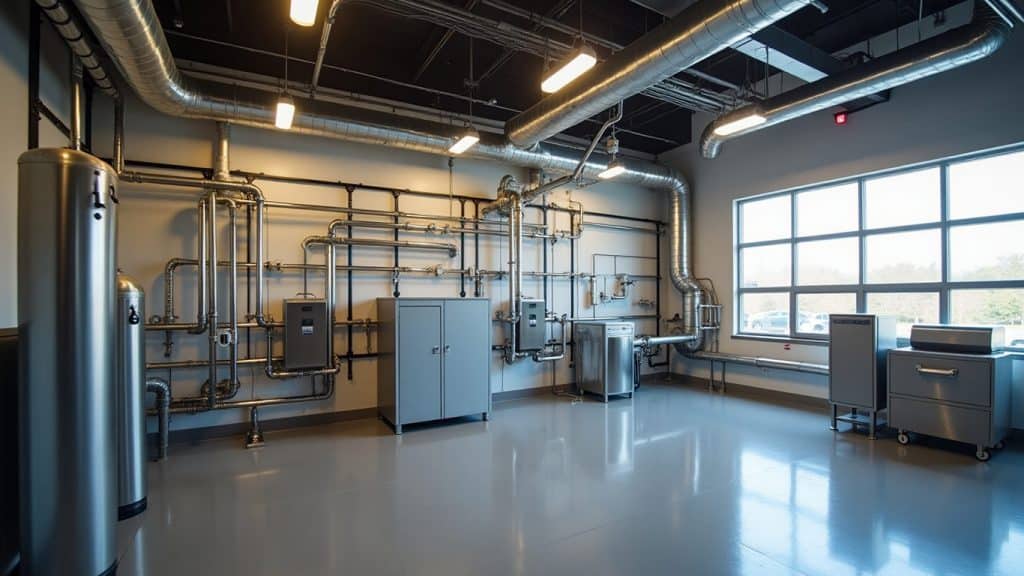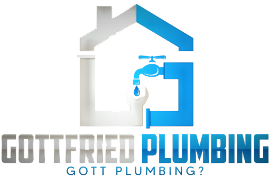24 Hour Emergency Service
License #43658 24 Hour Emergency Service Available (830) 331-2055
Commercial Plumbers in Boerne, TX
Our Commercial Plumbing Services in Boerne, TX
Businesses in Boerne, TX, depend on reliable water and drainage systems to maintain smooth daily operations. Gottfried Plumbing delivers commercial plumbing services designed to meet the unique needs of all local businesses.
Our team specializes in efficient repairs, installations, and maintenance, ensuring your system operates seamlessly without disrupting your workflow.

Why Choose Gottfried Plumbing?
Choosing Gottfried Plumbing ensures dependable solutions for immediate issues and ongoing system upkeep. Our skilled team offers a wide range of services, including pipe installations, sink and faucet repairs, water heater replacements, and leak detection. We also specialize in drain cleaning, toilet repair, and comprehensive system maintenance tailored to the needs of businesses in Boerne, TX. Each service is designed to keep your water and drainage systems functioning smoothly, minimizing disruptions to your daily operations.
What Commercial Plumbing Services We Offer In Boerne, Texas
Our local team of qualified plumbers are ready to help with any of your business’s specific needs. Our licensed professionals use advanced tools and proven methods to deliver efficient and dependable solutions. We recognize the critical role of a fully functional water and drainage system in your daily operations and are dedicated to upholding the highest standards of service and quality.
Business Plumbing Repair Services
Our commercial plumbing repair services in Boerne ensure your water and drainage systems remain operational and reliable. Common issues we address include:
- Leaky faucets
- Clogged drains
- Burst pipes
- Malfunctioning water heaters
Our certified plumbers diagnose and repair these problems using advanced equipment. Regular maintenance and timely repairs can extend the lifespan of your system and ensure compliance with health and safety regulations.
Contact us today for dependable repairs tailored to your business needs.
Industrial Installation Services
Gottfried Plumbing provides professional installation services for businesses in Boerne, TX. From setting up pipes and fixtures to advanced systems for new constructions or renovations, our team handles every detail. We use high-quality materials and ensure all installations meet local codes and industry standards, giving your business a durable and efficient system.
Call us at (830) 331-2055 to discuss your installation needs.
Full System Replacements
When repairs are no longer sufficient, Gottfried Plumbing offers expert replacement services for outdated systems. Signs that replacement may be necessary include:
- Frequent leaks
- Persistent clogs
- Reduced water pressure
Systems often need replacement every 15-25 years, depending on materials and maintenance history. If your system shows signs of wear or needs an upgrade, our team provides professional evaluations and efficient replacements.
Schedule a consultation today by calling (830) 331-2055.
Drain Cleaning Services for Offices in Boerne
Our team of professional plumbers deliver reliable drain cleaning services that will keep your business running smoothly. Over time, grease, food particles, and debris can clog drains, causing slow drainage or backups. Regular cleanings help prevent these issues, avoiding costly repairs and downtime.
We use proven methods, such as drain snaking, to clear blockages and improve system efficiency. Routine cleanings extend the lifespan of your system and reduce the risk of emergencies.
Call us at (830) 331-2055 to schedule drain cleaning services.
Sewer Solutions for Small to Large Businesses
Our team provides comprehensive sewer line services, including repairs and installations. Common issues such as blockages, tree root intrusion, and pipe corrosion can cause backups and unsanitary conditions.
Using advanced diagnostic tools like video inspections, we quickly and accurately identify sewer line issues. Repairs and replacements are performed with minimal disruption to your business.
Call (830) 331-2055 for professional sewer services.
Water Heater Repairs & Replacement Services
Gottfried Plumbing specializes in water heater services, ensuring your business has a consistent and efficient hot water supply. Whether you need a new installation or an upgrade, our team installs high-efficiency systems tailored to your needs.
Contact us today at (830) 331-2055 for expert water heater solutions.
Faucet Installation and Repair Services for Professional Spaces
We offer reliable faucet installation and repair services for businesses in Boerne, TX. Whether outfitting a new space or replacing old fixtures, our team ensures smooth and efficient installations. Properly functioning faucets are essential for maintaining hygiene in spaces like offices, restaurants, and healthcare facilities.
Contact us at (830) 331-2055 for faucet solutions.
Leak Detection and Repair for Commercial Properties
Leaks can disrupt operations and cause costly damage. Our leak detection and repair service address all areas, including:
- Pipe Leaks: Caused by corrosion, pressure, or damage.
- Fixture Leaks: Found around sinks, toilets, and faucets due to worn seals.
- Underground Leaks: Hidden in main water lines or sewer lines.
We use advanced technology to locate and fix leaks efficiently, minimizing downtime for your business.
Call (830) 331-2055 for expert leak detection services.
Pipe Repair, Installation, and Replacement for Industrial Use
We provide comprehensive pipe services, ensuring your system operates efficiently. Our offerings include:
- Pipe Repair: Addressing leaks, corrosion, and bursts with quality materials.
- Pipe Installation: Installing durable systems for new or existing facilities.
- Pipe Replacement: Upgrading aged or damaged systems to improve reliability.
Advanced diagnostic tools allow us to resolve issues quickly, minimizing disruptions to your business.
Contact us at (830) 331-2055 for professional pipe services.
Professional Plumbing Services for Businesses
Gottfried Plumbing offers expert services in Boerne, TX, designed to keep your business operations uninterrupted. Our team specializes in pipe installations, faucet repairs, leak fixes, drain cleaning, and more.
We also provide advanced solutions such as water treatment system installations and rainwater collection setups to address specialized needs. With a focus on quality and efficiency, we ensure your water and drainage systems operate seamlessly.
Contact us at (830) 331-2055 for customized solutions tailored to your business.
Advantages of Hiring Professional Plumbers for Businesses
Efficient water systems are crucial for daily business operations in Boerne, TX. While handling issues in-house may seem convenient, professional services offer unmatched advantages.
Licensed Expertise
Hiring licensed professionals guarantees high-quality workmanship. Our certified team tackles a wide range of issues, providing reliable and durable solutions that meet your business needs.
Business-Focused Repair Solutions
We prioritize minimizing disruptions to your operations. Our repair services are designed for commercial spaces, ensuring quick, effective fixes that keep your business running smoothly.
Comprehensive Repair Services
From minor faucet fixes to resolving complex system issues, our team is equipped to manage it all. We address the unique demands of business systems with expertise and efficiency.
Specialized Services for All Types of Organizations
The needs of businesses differ from residential setups. Our team specializes in solutions tailored for offices, retail locations, and other commercial properties.
Complete Plumbing Support
We go beyond basic repairs by offering services such as water filtration installations, regular maintenance, and emergency support. These comprehensive solutions help ensure your operations run without interruptions.
24/7 Emergency Plumbers in Boerne, TX
Plumbing emergencies can disrupt your business and cause costly downtime. Our team provides around-the-clock support to resolve urgent issues, prevent further damage, and restore functionality.
With advanced tools and specialized training, our emergency plumbers in Boerne deliver lasting repairs, helping you avoid recurring problems and saving time and resources.
Your Trusted Commercial Plumbing Company in Boerne
A dependable plumbing system is the backbone of any successful business. At Gottfried Plumbing, we understand the unique challenges businesses face and prioritize reliable plumbing solutions to support daily operations. From repairs to installations, our expertise ensures your plumbing system functions seamlessly, allowing you to focus on growing your business.
Call Gottfried Plumbing today at (830) 331-2055 for commercial plumbing services tailored to your business needs.
